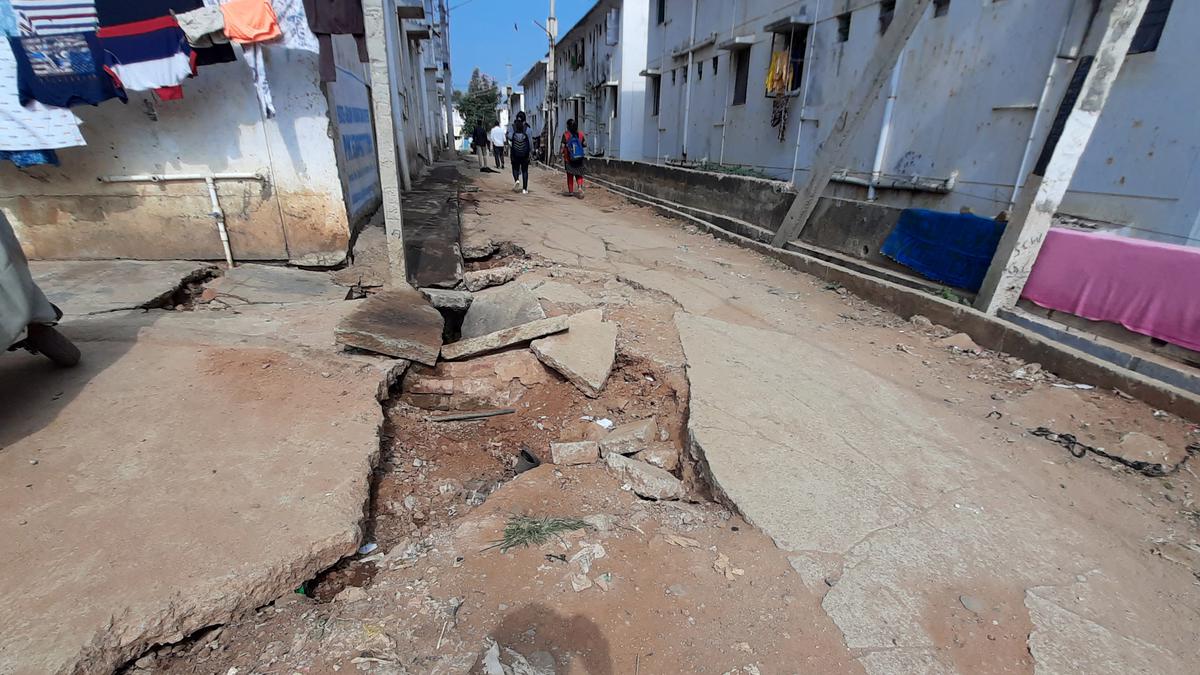
Basic amenities still a pipe dream for relocated slum-dwellers in Bengaluru Premium
The Hindu
Slum-dwellers in Bengaluru relocated, but still awaiting basic amenities & facing socio-economic issues.
A little off the western corridor of the Outer Ring Road (ORR), which runs along the perimeter of Bengaluru, less than a kilometre away from Laggere bridge, stand hundreds of identical buildings along kachcha roads in stark contrast to the other sights along the arterial road. In these buildings, commonly called “slum quarters”, live thousands of people who were previously staying in small sheds or tents.
The Karnataka Slum Development Board (KSDB) has built over 16,000 houses on an expanse of 60 acres in this area. These housing units, each measuring roughly 300 sq. ft, are occupied by a variety of people such as construction labourers, domestic workers, garments unit workers, drivers, teachers, and their families. The average income of these families ranges between ₹10,000 and ₹15,000 a month.
There are three floors above the ground floor in every building and each floor has four houses. Although these buildings were handed over to the dwellers a little over a decade ago, they appear significantly older. In many houses, the concrete has chipped away so much that the steel reinforcement of the pillars is visible. One cannot ignore the stench, the buzz of insects, and the sight and smell of sewage flowing along these quarters.
A few men who were playing ‘chakkar’ (a folk game) stopped midway and accompanied this reporter to give a tour of their locality. “Look at the condition of this road. It is in a shambles. We have seen three or four motorists fall on this unlevelled road in the last few days alone,” says Naga Reddy, a construction worker. He is the in-house repairer of the roofs and walls of the buildings that get damaged due to seepage of rainwater.
At the Laggere quarters, the residents say dilapidated roads and blocked sanitary chambers are their primary problems. “We pool resources from our own pockets, which might come up to a few thousand, to get these chambers cleaned. As the buildings are on different levels and because there are no restraining walls, sewage easily flows into low-lying areas, and when it rains, the roads get flooded, making it impossible for children to even access the government school in the locality,” says Aravind, who works in a private company.
The lack of law and order is another problem the residents flag. “If you are a stranger walking by on these roads after sunset, then there is a high chance that you will be mugged. The road that provides us access to the bus stop on the main road turns into an adda for some boys to consume alcohol and drugs at night. It is scary, especially for women and children, to walk on the roads,” a woman from Laggere housing quarters said.











